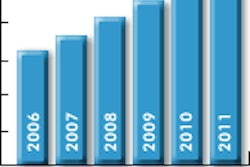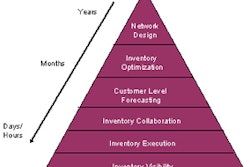Research Triangle Park, NC — January 29, 2007 — Universities with best-in-class procurement organizations typically have a clear institutional policy that recognizes the value that the procurement function contributes to overall program success, according to the results of a new study.
Solution provider SciQuest conducted the recent benchmarking study in conjunction with IBM and the Pennsylvania State University Center for Supply Chain Research. The purpose of the study was to identify those factors that enabled select universities to stand out as the most innovative best-in-class procurement practitioners.
The study found that those institutions demonstrating the best performing procurement activities are those that have a clearly articulated policy that promotes the value that can be realized by the entire organization. Specifically, this requires university leadership to have a clear understanding of the value that can be added far beyond the traditional purchase price variance.
This is related to the second finding whereby rationalization, or a reduction in the supplier base, allows for increased economic leverage, while also enabling improved relationships and the robust exchange of information.
Other characteristics common to best-in-class universities include the practice of selectively applying strategic sourcing where it can make the best contributions, making a clear departure from transaction-centric purchasing by embracing technology-based solutions, and the establishment of metrics that drive appropriate behaviors by procurement and its internal customers, according to the study.
Original goals of the benchmarking study included:
IBM's Public Sector Procurement Consulting Practice facilitated the design of the survey questionnaire and managed the data collection process using the IBM Benchmarking Tool. Results of the study were announced at the NextLevel conference, SciQuest's user conference for procurement and finance professionals, held last week in San Diego.
"Higher education institutions are often faced with budgetary restraints that prevent important collegiate programs from implementation," said Steve Wiehe, president and CEO of SciQuest. "The results of this benchmark study will provide guidance on improving purchasing programs to enable intelligent spend management for campuses of all sizes."
The findings of the Innovator Circle Benchmarking study are to be distributed later this year. Individuals interested in receiving a copy of the report can register their contact name at http://www.sciquest.com/value/va_contact.php.
Solution provider SciQuest conducted the recent benchmarking study in conjunction with IBM and the Pennsylvania State University Center for Supply Chain Research. The purpose of the study was to identify those factors that enabled select universities to stand out as the most innovative best-in-class procurement practitioners.
The study found that those institutions demonstrating the best performing procurement activities are those that have a clearly articulated policy that promotes the value that can be realized by the entire organization. Specifically, this requires university leadership to have a clear understanding of the value that can be added far beyond the traditional purchase price variance.
This is related to the second finding whereby rationalization, or a reduction in the supplier base, allows for increased economic leverage, while also enabling improved relationships and the robust exchange of information.
Other characteristics common to best-in-class universities include the practice of selectively applying strategic sourcing where it can make the best contributions, making a clear departure from transaction-centric purchasing by embracing technology-based solutions, and the establishment of metrics that drive appropriate behaviors by procurement and its internal customers, according to the study.
Original goals of the benchmarking study included:
- Measuring and evaluating current spend and trends within higher education procurement;
- Assessing the rate of adoption and performance of leading procurement trends;
- Identifying best practices institutions have employed;
- Developing a framework to perform a multi-year repeatable procurement benchmarking process for future use.
IBM's Public Sector Procurement Consulting Practice facilitated the design of the survey questionnaire and managed the data collection process using the IBM Benchmarking Tool. Results of the study were announced at the NextLevel conference, SciQuest's user conference for procurement and finance professionals, held last week in San Diego.
"Higher education institutions are often faced with budgetary restraints that prevent important collegiate programs from implementation," said Steve Wiehe, president and CEO of SciQuest. "The results of this benchmark study will provide guidance on improving purchasing programs to enable intelligent spend management for campuses of all sizes."
The findings of the Innovator Circle Benchmarking study are to be distributed later this year. Individuals interested in receiving a copy of the report can register their contact name at http://www.sciquest.com/value/va_contact.php.

















